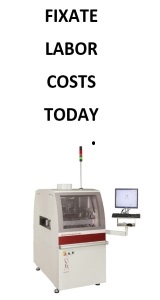Printed Circuit Board Assembly & PCB Design Forum
SMT electronics assembly manufacturing forum.
- SMTnet
- »
- Electronics Forum
- »
- Cracking Capacitors
Cracking Capacitors
![]()
![]() I am in need of possible causes and solutions to capacitor...
- Sep 03, 1998
by
I am in need of possible causes and solutions to capacitor...
- Sep 03, 1998
by
![]()
![]() | I am in need of possible causes and solutions to capacit...
- Sep 03, 1998
by
| I am in need of possible causes and solutions to capacit...
- Sep 03, 1998
by
![]()
![]() | I am in need of possible causes and solutions to capacit...
- Sep 03, 1998
by
| I am in need of possible causes and solutions to capacit...
- Sep 03, 1998
by
![]()
![]() | I am in need of possible causes and solutions to capacit...
- Sep 03, 1998
by
| I am in need of possible causes and solutions to capacit...
- Sep 03, 1998
by
![]()
![]() | I am in need of possible causes and solutions to capacit...
- Sep 03, 1998
by
| I am in need of possible causes and solutions to capacit...
- Sep 03, 1998
by
![]()
![]() Rich,
From my experience, few causes of capacitor crackin...
- Sep 03, 1998
by
Rich,
From my experience, few causes of capacitor crackin...
- Sep 03, 1998
by
![]()
![]() | I am in need of possible causes and solutions to capacit...
- Sep 03, 1998
by
| I am in need of possible causes and solutions to capacit...
- Sep 03, 1998
by
![]()
![]() Rich:
In my experience, I have seen three cases of SMT Ca...
- Sep 08, 1998
by
Rich:
In my experience, I have seen three cases of SMT Ca...
- Sep 08, 1998
by
![]()
![]() | | I am in need of possible causes and solutions to capac...
- Sep 09, 1998
by
| | I am in need of possible causes and solutions to capac...
- Sep 09, 1998
by
![]()
![]() | | | I am in need of possible causes and solutions to cap...
- Sep 09, 1998
by
| | | I am in need of possible causes and solutions to cap...
- Sep 09, 1998
by
- SMTnet
- »
- Electronics Forum
- »
- Cracking Capacitors







